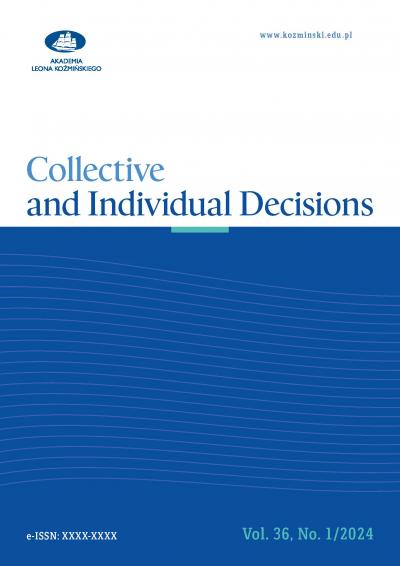Decyzje uczestników teleturnieju: różnice kulturowe, racjonalność i uczenie się
Júlio Lobão
University of Porto
12/2020 2020 (34) Decyzje
DOI 10.7206/DEC.1733-0092.144








